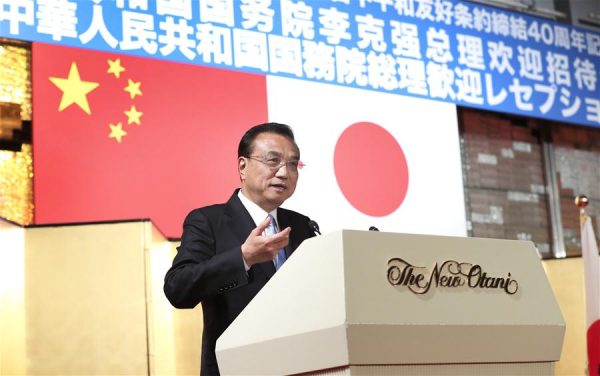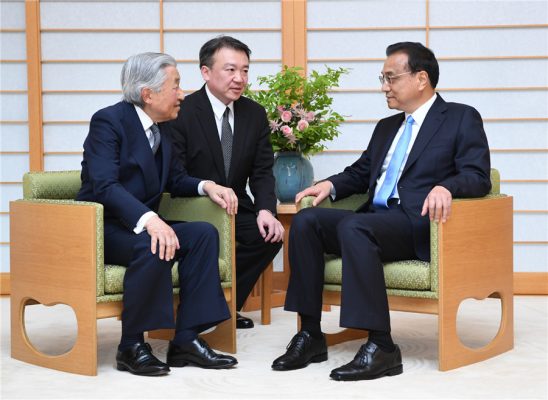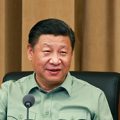
The China-Japan Treaty of Peace and Friendship, which includes Japan’s self-reflection on aggression against China and its one-China stance, is one of the four political documents both countries should fully comply with to bring bilateral ties back to the right track, Premier Li Keqiang said on Thursday.
The treaty was a milestone document for bilateral relations, confirming principles in the China-Japan Joint Declaration and the adherence to the one-China policy, the premier said at a reception that commemorated the 40th anniversary of the signing of the treaty in Tokyo.
Japanese Prime Minister Shinzo Abe, and more than 1,400 representatives from both countries participated in the event, which Li said showcased a wide range of common interests shared by the two countries.
Over the past 40 years, bilateral ties made productive achievements guided by principles set in the treaty, despite twists and turns, Li said. Ties can move back to the right track because of the spirit and fundamental principles set in the four political documents, he said.
Both countries should comply with the treaty to increase friendship, said Li, who called for learning from history and facing up to the future, while keeping high-level exchanges between the two neighbors.

The premier called on Japan to align its development strategies with the Belt and Road Initiative, boost cooperation in innovation and high-end manufacturing.
Li said people-to-people exchanges, including tourism, should be promoted to enhance connections between the two peoples. Tokyo’s hosting of the 2020 Summer Olympic Games and China’s hosting the 2022 Winter Olympic Games will provide opportunities to enhance communication among the public.
As two of the world’s major economies, China and Japan should make further efforts to safeguard the multilateral trading system and free trade by fighting against rising protectionism, Li said.
“During my visit, Abe and I had frank talks and reached a basic consensus. Around 20 projects were approved by both countries,” Li said.
Meetings between leaders from both countries can make great strides in ties, and the two countries have agreed to expand cooperation in fields such as finance and trade, Abe said.

Earlier on Thursday, Li also visited Japanese Emperor Akihito and several leading politicians.
The two countries should take full advantage of the exchange of their legislative organizations, bringing people from all walks of life to have an objective and rational perception of the ties, Li told Japanese legislators.
During a meeting with Tadamori Oshima, speaker of the House of Representatives in Japan’s parliament, or Diet, the premier said President Xi Jinping sent a clear message to the world at the 2018 Boao Forum for Asia in Hainan province that China will firmly open its door wider. New opportunities will come for pragmatic cooperation between China and Japan.
Oshima congratulated Li for his successful visit to Japan. Cooperative agreements signed between Japan and China and positive results from trilateral talks by leaders of China, Japan and the Republic of Korea on Wednesday will help promote peace, stability and prosperity for Asia and the world at large, he said.
Chuichi Date, president of the House of Councillors in the Diet, said bilateral ties are among the most important ties for both countries. China’s peaceful development is vital to Japan as well as the region and the world, he said.


